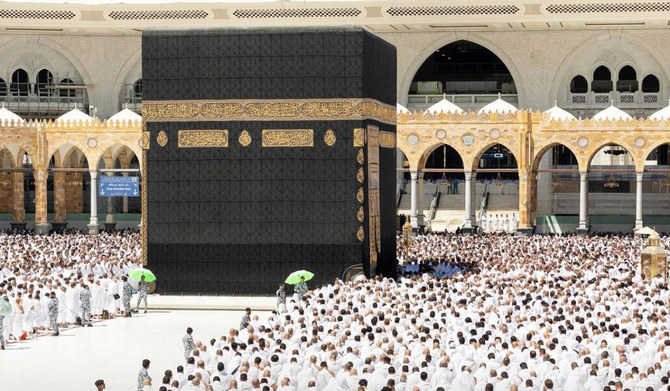
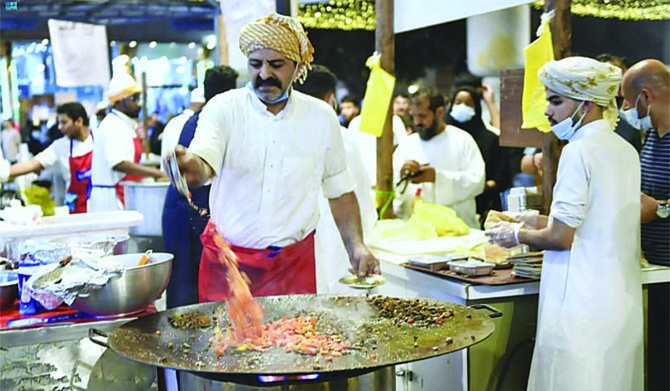
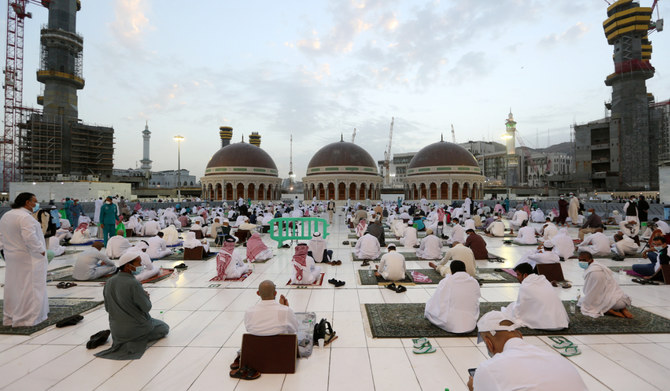



JEDDAH: More than 2 billion Muslims worldwide are embarking on the sacred journey of Ramadan, a holy month that goes far beyond abstaining from food and drink.
Ramadan is a time for self-reflection, devotion, generosity, and sacrifice, uniting the global Muslim community in a shared commitment to spiritual growth.
At the core of Ramadan lies the spiritual commitment to fasting, a practice observed by Muslims as a means of developing self-discipline, empathy for the less fortunate, and spiritual awareness.
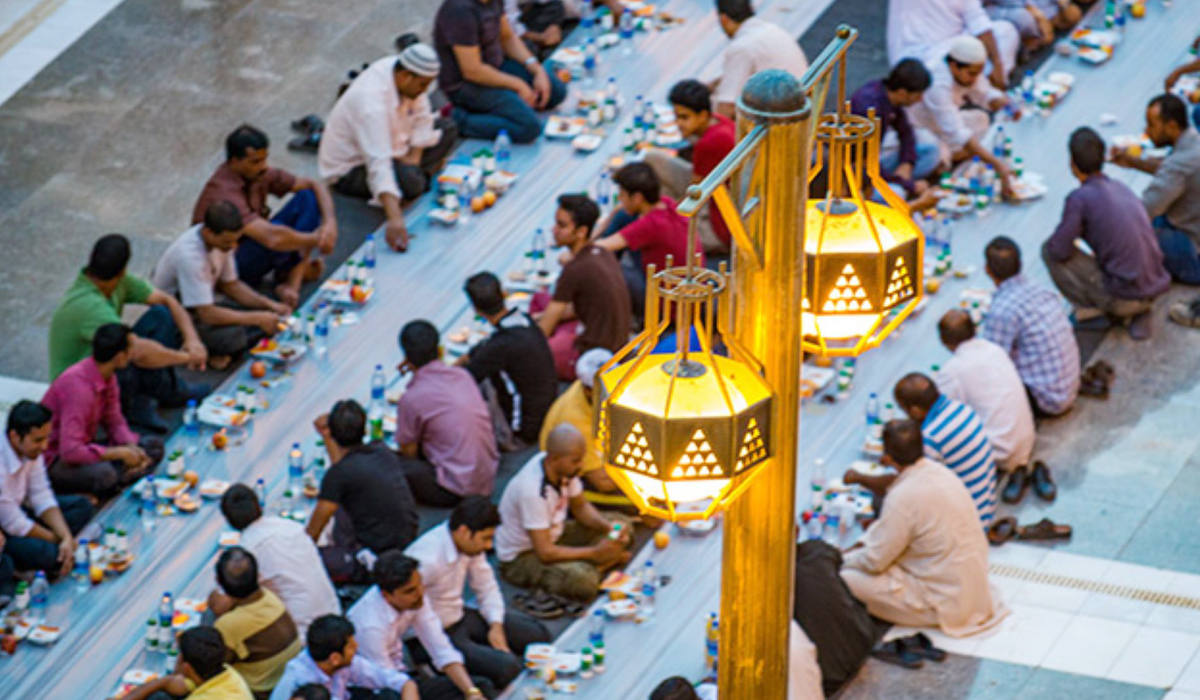
The fast is broken each evening with the call for Maghrib prayer at sunset with a communal meal called iftar, fostering a sense of unity and gratitude.
Nighttime prayers, known as Taraweeh, are another integral aspect of Ramadan, allowing Muslims to engage in prolonged and intense worship after Isha prayer and mosques witness rows filled with worshippers and Muslims all over the world pay attention to the Qur’an recital of various imams.
The General Authority for the Affairs of the Grand Mosque and the Prophet’s Mosque recently announced the Taraweeh and Tahajjud prayers’ schedule for this year’s Ramadan.
The list includes Abdulrahman Al-Sudais, Sheikh Maher Al-Mu’aiqly, Sheikh Abdullah Al-Juhany, and Sheikh Bandar Baleelah.
For the Taraweeh prayer on the night of the 27th of Ramadan at the Grand Mosque, Al-Juhany will lead the first set of prayers, Baleelah will lead the second set, while the final set, along with the Witr prayer, will be concluded by Al-Sudais.
The 27th night of the holy month, Laylat Al-Qadr, is considered a blessed night in the Islamic calendar and holds a special place in the hearts of Muslims.

It is said to be the night when the Qur’an was first revealed to Prophet Muhammad and it is considered more sacred than a thousand months. Fasting and praying during Laylat-al-Qadr are believed to bring immense rewards, including the forgiveness of sins and the fulfillment of heartfelt prayers.
Fatima Muthannah, a 25-year-old university student from Jeddah, expressed her excitement and readiness for the holy month. She told Arab News: “I am filled with anticipation and excitement as the holy month approaches.”
I am excited to engage in the nightly prayers and community iftars, as they bring us together as a family and a larger community.
Khalid Mufti, Makkah local
She noted the measures she took in preparation for Ramadan. “I have been preparing myself spiritually by increasing my prayers and recitation of the Qur’an, mentally by reflecting on my actions and seeking forgiveness, and physically by adjusting my diet and sleep schedule to accommodate the long fasts. Ramadan is a time of renewal and growth for me, and I cannot wait to experience the blessings it brings,” she said.
Khalid Mufti, from Makkah, said: “Ramadan holds a special place in my heart as it is a time for spiritual growth and reflection … I am excited to engage in the nightly prayers and community iftars, as they bring us together as a family and a larger community. Ramadan is a time of unity, mercy, and blessings, and I am eager to make the most of it.”
Young Muslims
Each Ramadan season offers a unique opportunity for parents to introduce the holy month to youngsters by gradually training them to fast. This early introduction serves as a gentle way to familiarize them with the practice and its significance, emphasizing the religious rewards and virtues of fasting. By doing so, parents plant the seeds of understanding and appreciation for this sacred duty, preparing their children for the time when fasting becomes a compulsory act of devotion as adults.
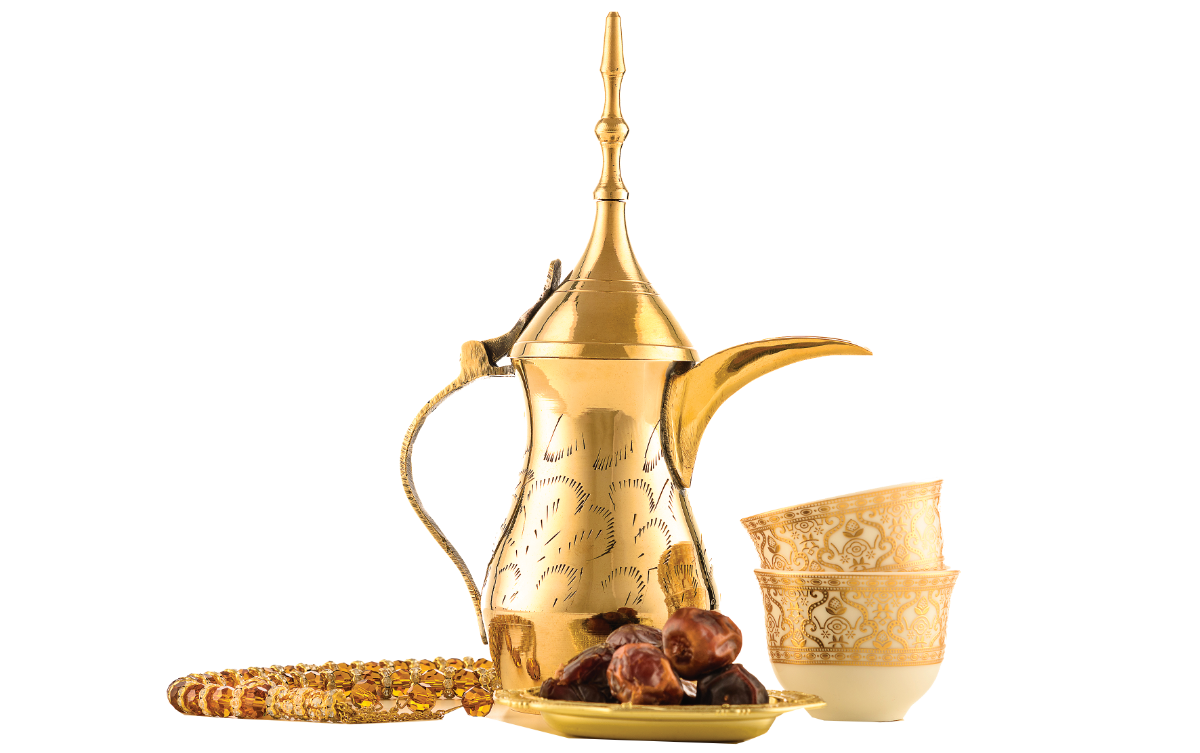
Dr. Abdullah Jamal, a pediatrician and father to a 6-year-old son who will do a half-day fast for the first time this year, told Arab News: “This holy month isn’t just significant for us as adults, but holds a unique, enriching experience for the young ones, too. It’s a period where they learn about patience, spirituality, and the essence of giving.”
He added that parents should “gently introduce the concept of Ramadan, focusing on its spiritual and communal aspects rather than just fasting. Encourage participation in non-fasting activities like prayer, charity, and family gatherings to instill a sense of belonging and joy in their young hearts.”
Renewal
A sense of renewal is part of the coming of Ramadan, from thorough cleaning to decorating homes and engaging in festive shopping.

In the bustling streets and markets of cities around the Kingdom, the excitement is palpable as vendors display an array of goods tailored for Ramadan. From traditional foods to intricately designed decorations, the markets come alive with the spirit of the season.
Al-Balad in Jeddah and Souk Al-Zal in Riyadh are notable markets where visitors and families gather to enjoy the vibrant scene of Ramadan joy.
Souk Al-Zal covers 38,000 square meters and stands as one of the city’s most ancient traditional markets, with a history that stretches back over a century within its corridors. It is located in the Al-Dirah neighborhood at the core of Riyadh, about 5.4 km away from the historic Al-Murabba palace.
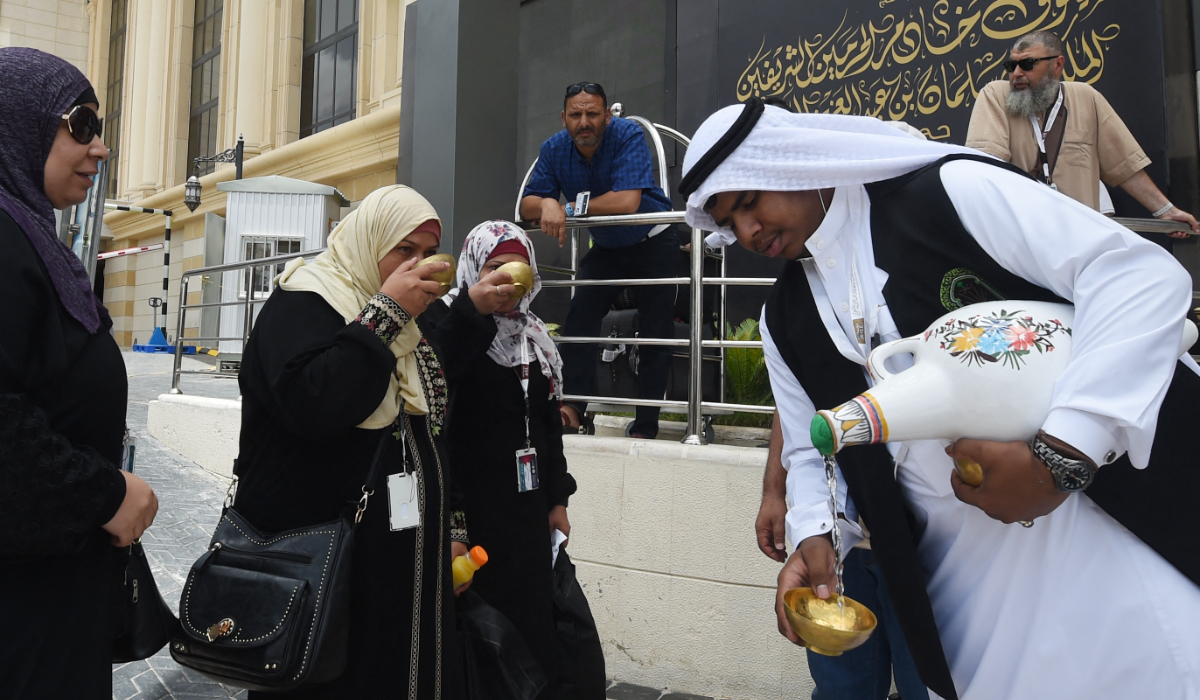
The historic district of Al-Balad beautifully encapsulates the blending of tradition and modernity in celebrating the holy month. In the historic architecture and narrow alleys of Al-Balad, visitors can witness vibrant festivities and the rich cultural tapestry of Hejaz. Local vendors offer traditional Ramadan decorations alongside street food that caters to diverse tastes.
Abdul Rahman, a vendor in Al-Balad, reflecting on the unique atmosphere, said: “We take great pride in providing our customers with quality products that blend tradition and modernity. The joy on people’s faces as they shop for Ramadan is truly heartwarming.”
Community meals and charitable acts
Earlier in February, the General Authority for the Affairs of the Grand Mosque and the Prophet’s Mosque opened applications for iftar meal service providers at the Grand Mosque in Makkah during Ramadan, subject to specific conditions and standards.
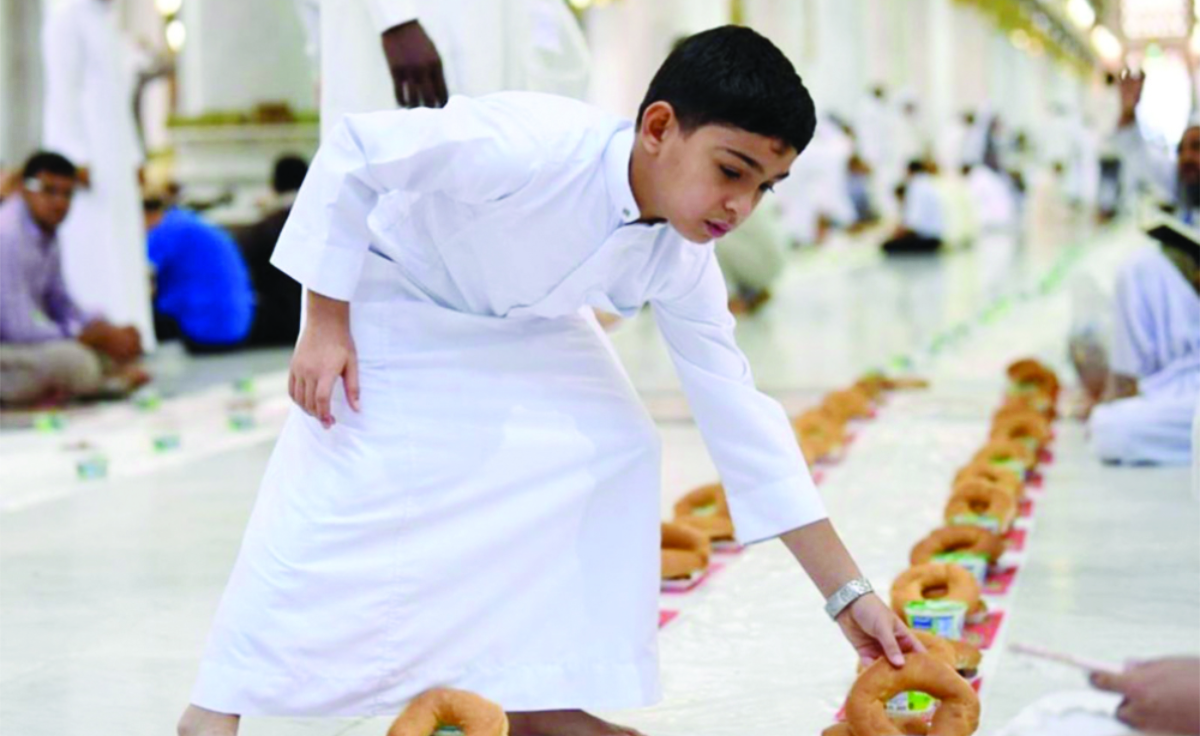
Providers can electronically select the meal location and are required to contract with approved catering companies or Saudi Food and Drug Authority-endorsed factories and warehouses.
The meals, consisting of items such as pitted dates, cakes, pastries, and juice, must adhere to approved packaging conditions.
The presidency also provides iftar services for fasting individuals at the Prophet’s Mosque during the holy month.
More than 8.5 million iftar meals are expected be distributed to fasting individuals at designated iftar locations in the mosque and its courtyards during this Ramadan.
Additionally, over 45 million beneficiaries will receive Zamzam water services, which includes the distribution of 2.5 million bottles of Zamzam water reserved for worshippers in the two holy mosques, as well as the distribution of drinking cups at 18,000 Zamzam water coolers throughout the Prophet’s Mosque.
Furthermore, 1,205 water fountains for drinking have been prepared and are distributed across the mosque’s external courtyards.
Last Ramadan, the Jood Eskan charity campaign raised SR1.5 billion (almost $400 million) during the holy month to provide housing for families in need.
Jood Eskan is a Saudi crowdfunding platform for home ownership launched in 2019 by Sakan, a non-profit arm of the Ministry of Municipal, Rural Affairs, and Housing.
As many as 26,250 individuals from 5,250 families throughout the Kingdom have secured homes thanks to the campaign, which has been officially recognized by Guinness World Records as the most successful month-long electronic charity drive in history.